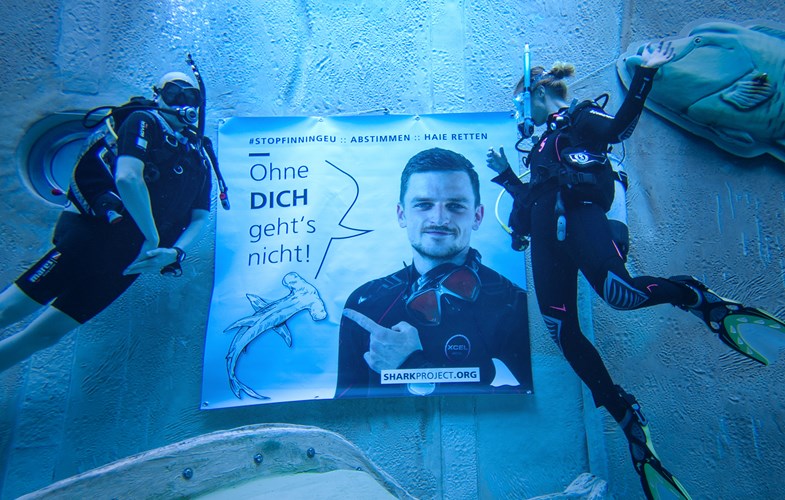
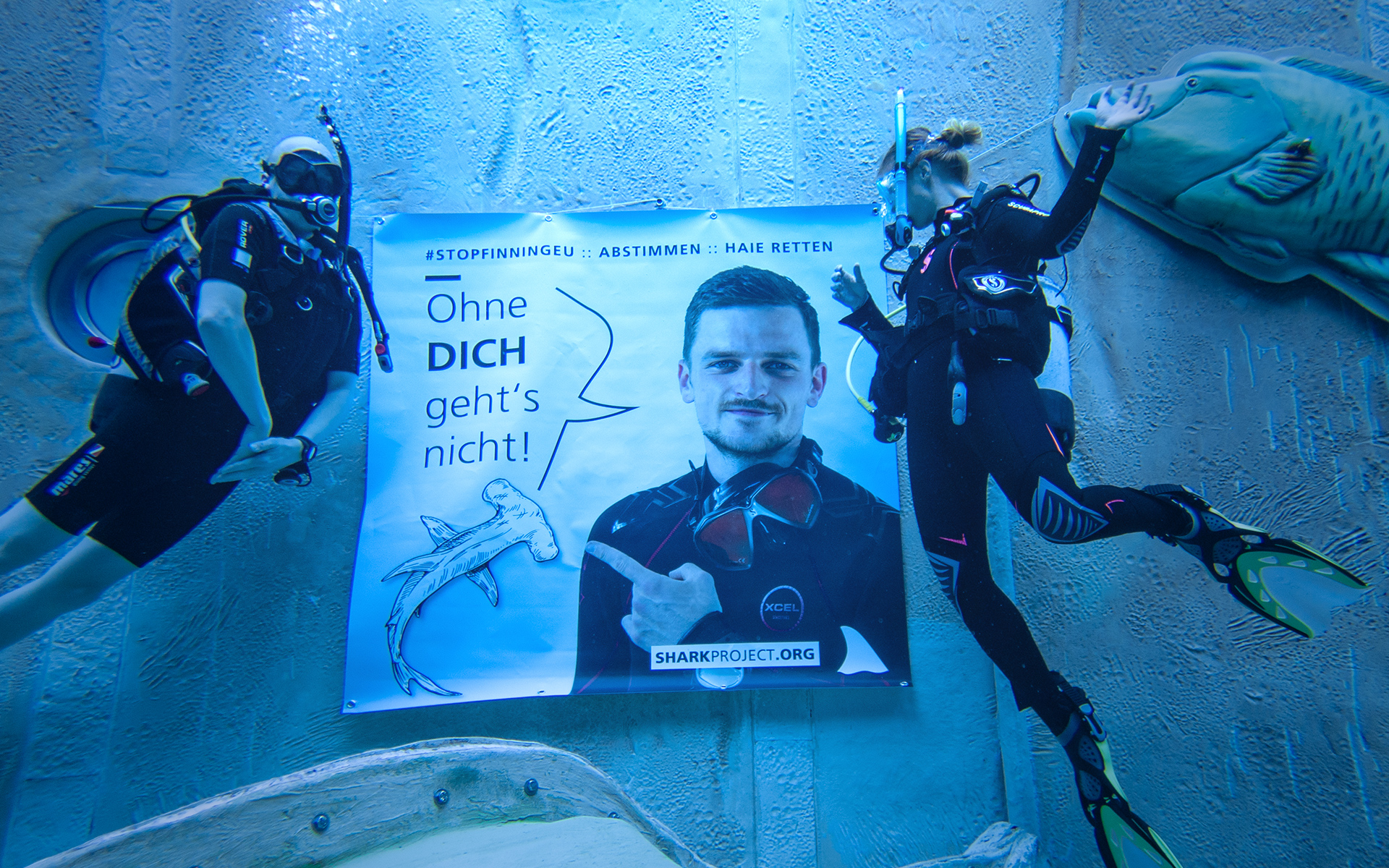
Campaign in support of the EU citizens' initiative “Stop Finning — Stop the Trade” for an EU-wide trade ban on loose shark fins
Not without You!
What? We can't do it without you? — Yes, exactly, it won't work without you!
Until January 2023, 1 million votes had to be received on the portal of the EU Commission, so that the European Commission and the European Parliament had to deal with the proposal to change the law. This means: Every single vote counted!
Description
Europe is also involved in this trade, whether by catching and processing sharks themselves or as a central transshipment point for fins from around the world.
Voluntary measures to restrict fishing are not to be expected. On the contrary, demand for the coveted fins is increasing. And where there is demand, there is profit.
The only real solution is appropriate and strict legislation. In 2013, first steps in this direction were taken by the EU. The “Fins Naturally Attached” regulation prohibits the storage, trans-/shipment, and landing of loose shark fins on EU vessels and in EU waters. The intention was twofold: to end the cruel practice of shark finning and to achieve a general reduction in European shark landings.
The reality, however, is different. Although there was a brief decline in catches, targeted marketing of shark meat quickly brought them back to their original levels. As soon as the animals are landed, their fins can be removed – legally. And as long as this and the trade in loose fins is allowed, Europe will continue to be one of the main transshipment points.
Another problem is the illegal wildlife trade in CITES-listed species. Without genetic analyses, it is almost impossible to determine the actual species from the severed fins. Transporting the entire carcass eliminates this problem.
The goal must be to create a new regulation in trade law that applies "Fins Naturally Attached" to all EU-wide trade, i.e. import, transit and export of loose fins.
Goal and Outcome
- Support the EU citizen initiative of Stop Finning - Stop the Trade.
- Double the number of votes in Germany and Austria
Our goal was to collect double the number of votes needed for Germany and Austria, with our partners. In Germany, out of 72,096 needed votes, 475,635 were registered (=659.72%), while in Austria, against 13,518 needed, 28,423 registered votes were received (=210.26%).
- The overall goal of the EU Citizens' Initiative to collect over 1 million votes of EU citizens entitled to vote was reached with over 1.1 million votes!
The EU announced that by the end of 2023 it will set up a so-called "Impact Assessment" on the environmental, social and economic impacts of a ban on shark fins in the European Union. The full response can be viewed here: https://europa.eu/citizens-initiative/initiatives/details/2020/000001_en
Duration
With the launch of the initiative, a 12-month period to gather votes began. However, due to the Covid 19 pandemic, the deadline was extended twice. The final deadline was January 31, 2022. After Member States’ authorities verified the collected signatures, on 11 January 2023 the organisers submitted the initiative to the European Commission and the Commission had to respond within 6 months.
In the meantime there were hearings by the Commission as well as the European Parliament - and a lot of lobbying on our part and on the part of our partners.
The EU Commission had to provide its response by 11.07.2023.
This response was then given on 05.07.2023 and can be read here: https://europa.eu/citizens-initiative/initiatives/details/2020/000001_de
Supporters and Sponsors
The German Postcode Lottery offers financial support for selected projects in the areas of climate protection, nature conservation, species protection and social measures. In 2021, funding was made available for the “Not without You!” campaign.
The European Citizens' Initiative
Since 2012, EU citizens have the option to get personally involved in European legislation. Through an EU Citizens' Initiative, they can directly address the European Commission to propose concrete legislative adjustments.
As a first step, an organizers' group consisting of at least 7 EU citizens residing in 7 different EU countries is established. This group then registers the initiative and the proposed legislative change with the European Commission. However, not every initiative is accepted, because certain substantive and formal requirements have to be met.
As soon as the Commission gives its “go”, the collection of votes can begin. Within one year, at least 1 million votes must be collected. All EU citizens who are old enough to vote in European elections are eligible to vote. In Germany the minimum age is 18, in Austria 16.
Signatures can be submitted either online directly to the EU Commission or on paper. If the minimum number is reached within the deadline (and these votes stand up to scrutiny) the initiative is finally submitted. In the next step, representatives of the organizing group present the issue to the European Parliament in a public hearing.
The Commission is obliged to announce its further course of action or the rejection of the proposed legislative amendment no later than 6 months after the submission of the initiative. If the decision is positive, the initiative will now go through the relevant legislative procedure and hopefully end in an adjustment of the existing legal situation.
Here you can read the initial application, which was submitted to the EU Commission at the beginning of 2020:
https://europa.eu/citizens-initiative/initiatives/details/2020/000001_en
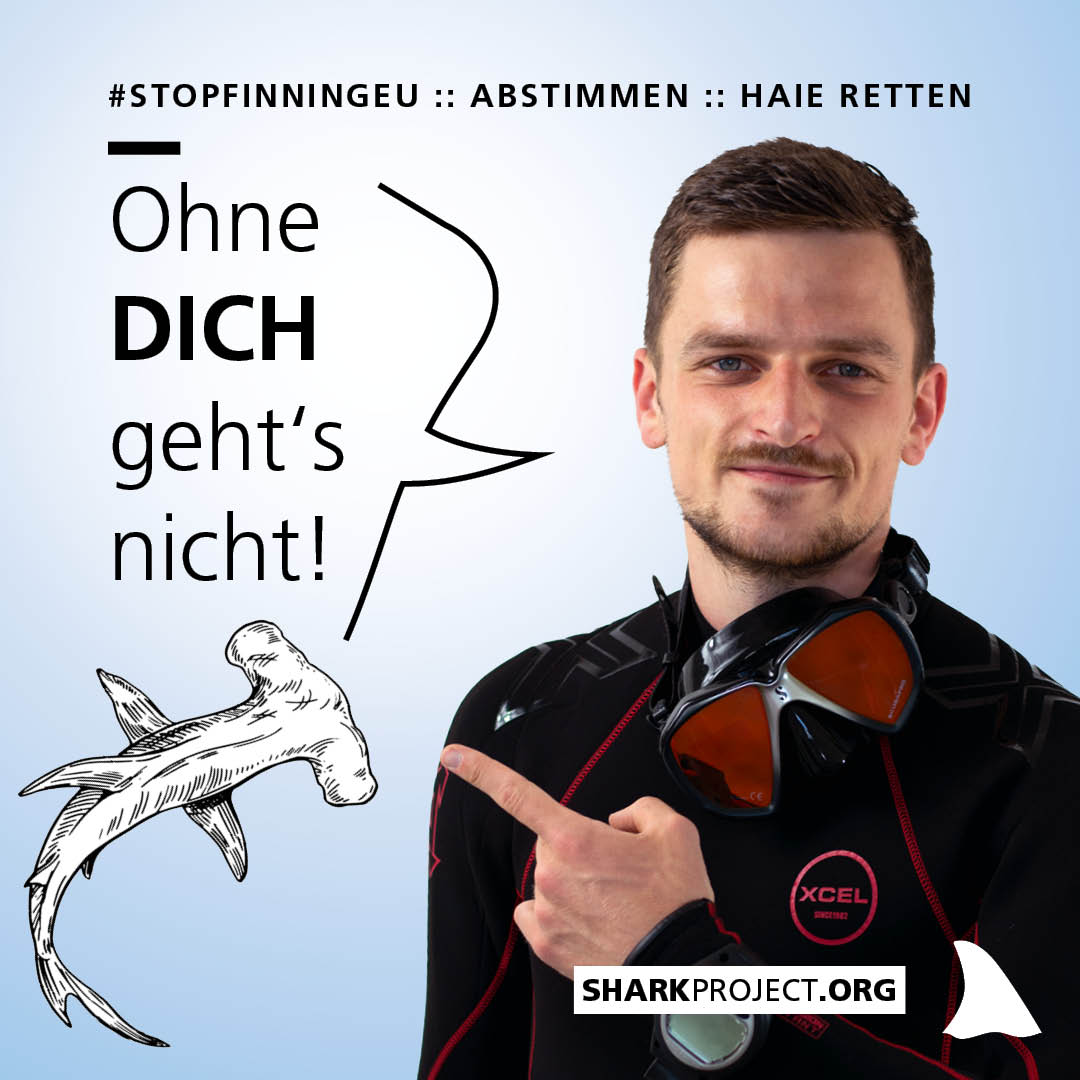
© Sharkproject/Marvin Richter
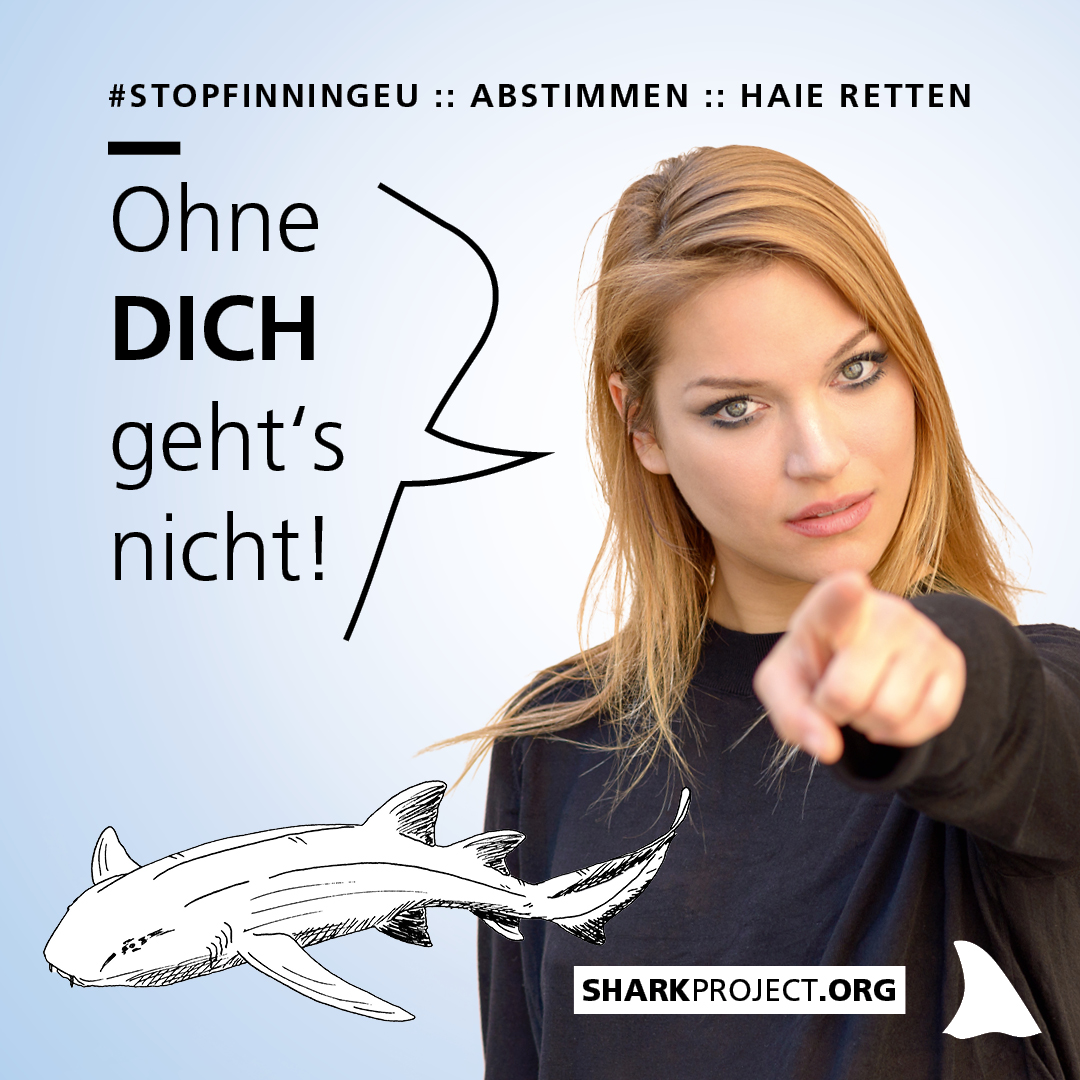
© Sharkproject/
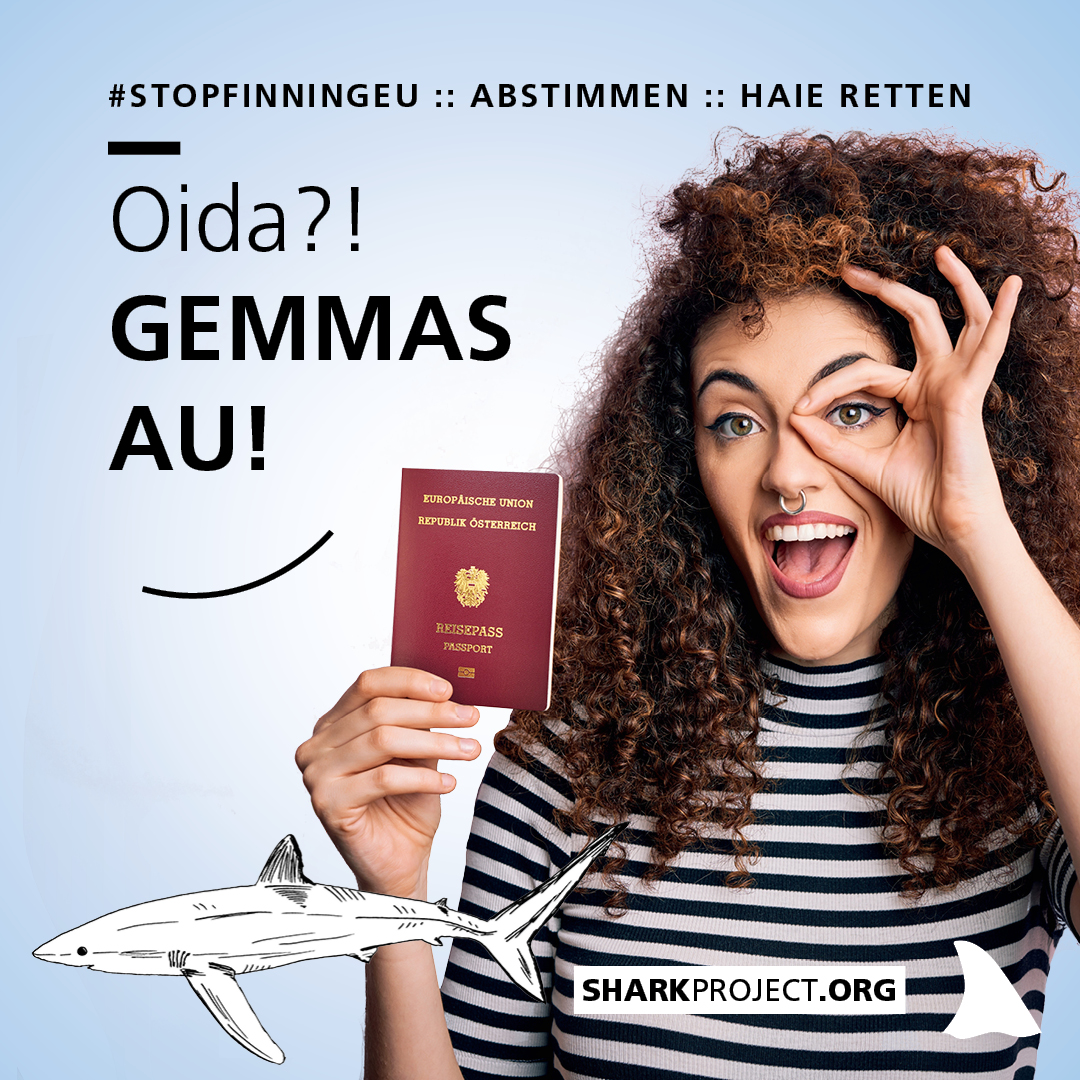
© Sharkproject/Krakenimages.com
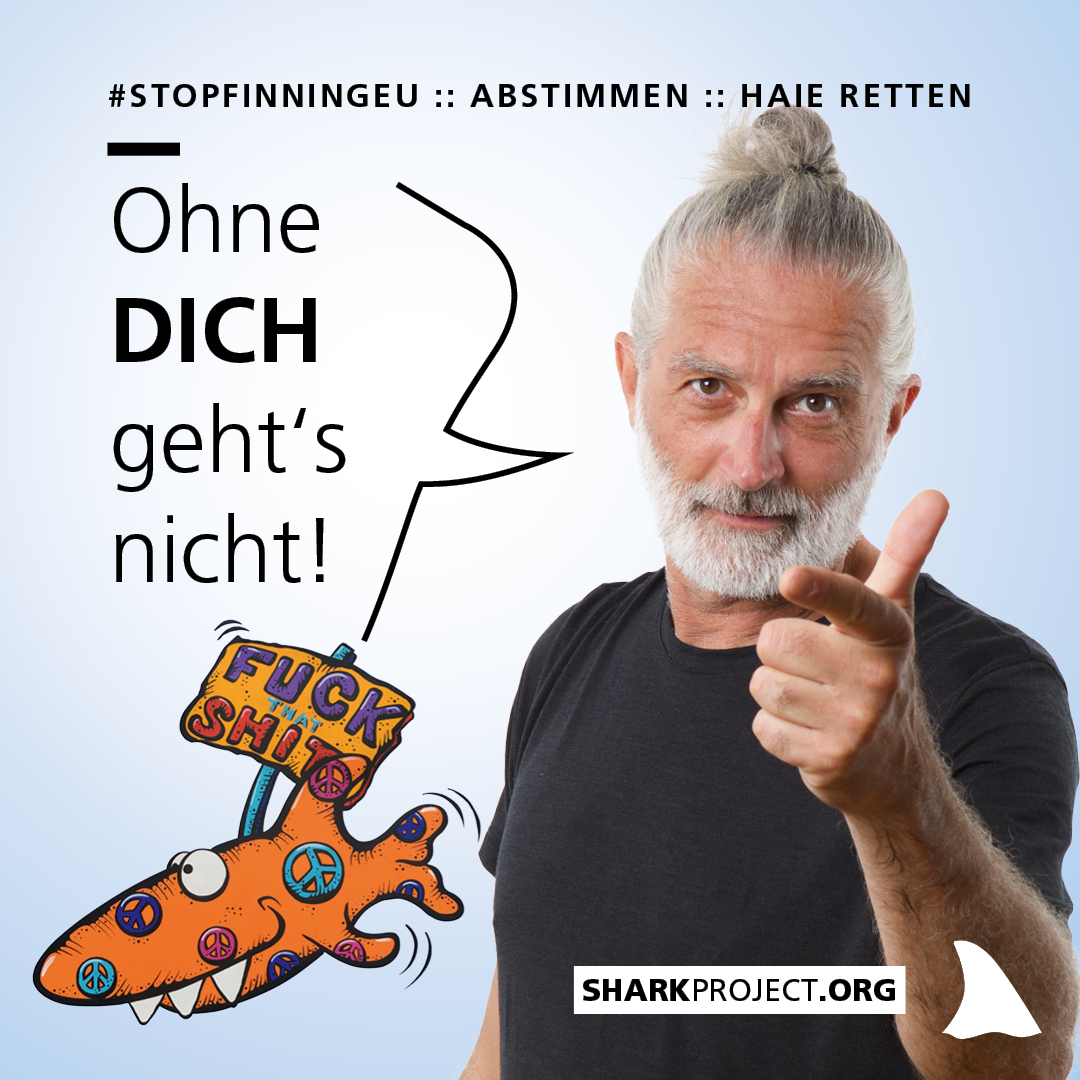
© Sharkproject/Oliver Feistmantel
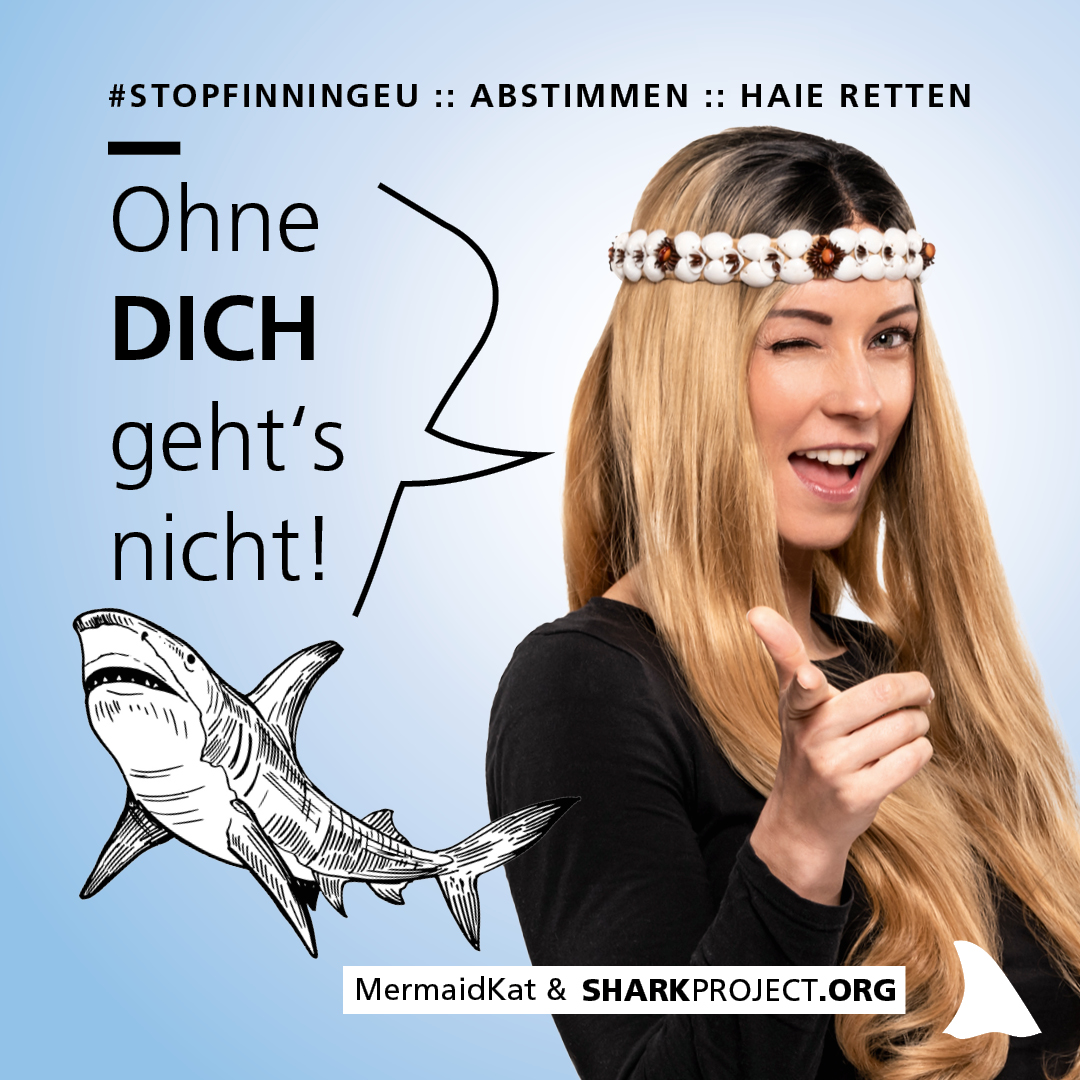
© Sharkproject/Ian Gray Photography
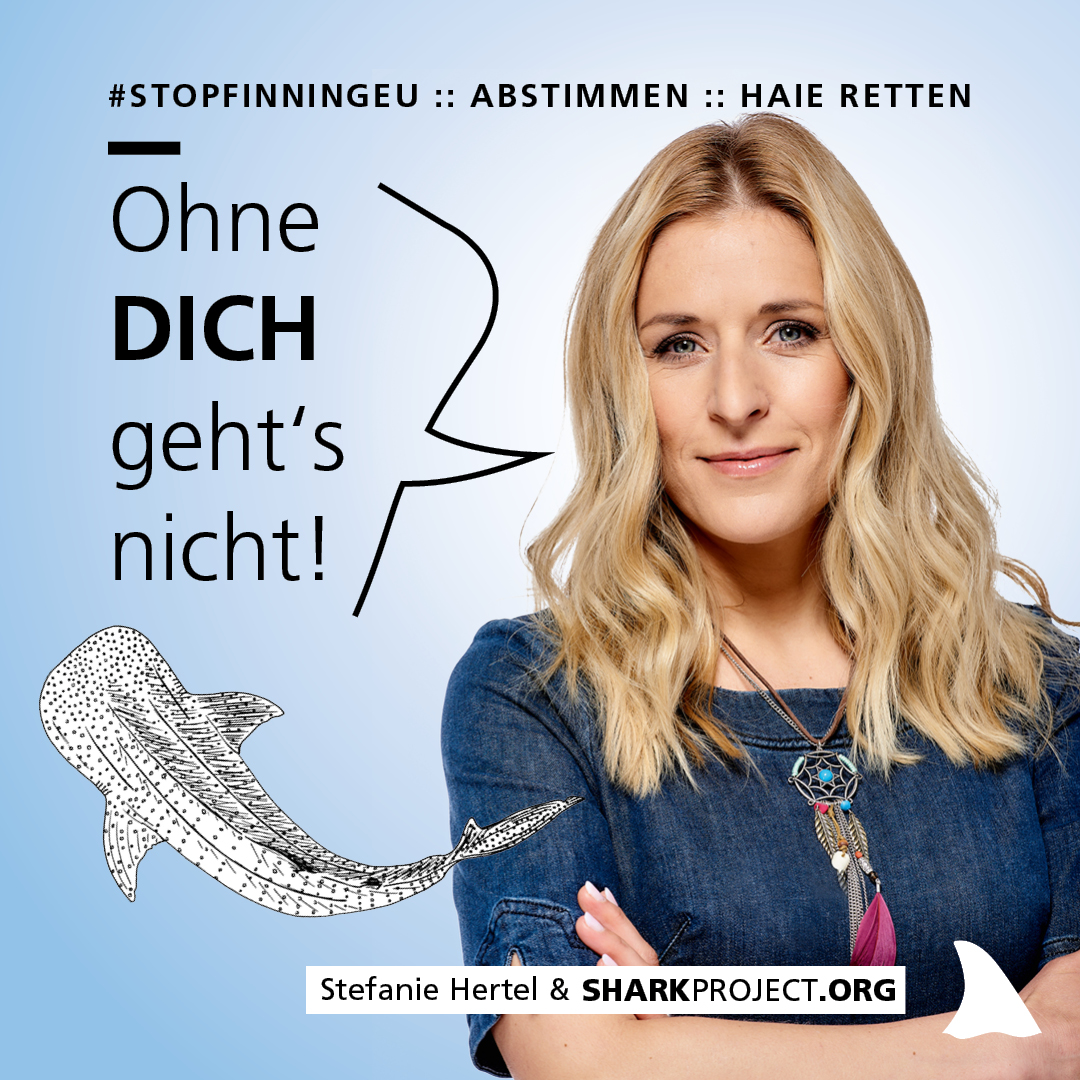
© Sharkproject/German Popp/Stefanie Hertel



